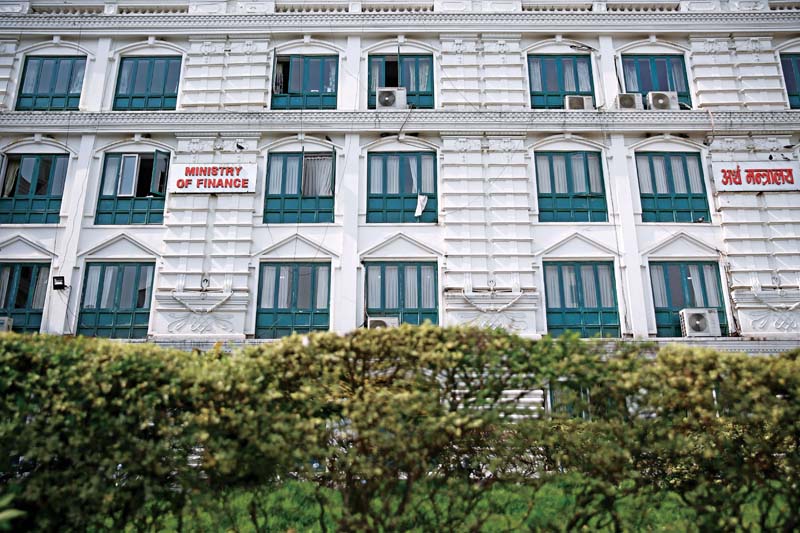MoF expresses commitment to execute Cabinet decisions, but can it deliver?
Kathmandu, January 29
The Ministry of Finance (MoF) today issued a statement expressing commitment to execute the Cabinet decisions following the widespread criticism of recent decisions taken by Sher Bahadur Deuba-led Cabinet.
However, as the ministry is already in a tight spot due to resource crunch after handing over the grants to local administrations and has been raising domestic debt at high interest rate just to cover the necessary expenditure of the central government, the question is: Will MoF be able to live up to its commitment?
After the electoral debacle, Nepali Congress Chairman Deuba-led Cabinet has been making decisions that create long-term liability of billions of rupees on the nation.
The recent Cabinet meeting reduced the eligibility age to obtain social protection allowance for senior citizens from 70 years to 65 years. It has announced livelihood allowance of Rs 5,000 per month for the citizens battling renal diseases, diabetes, paralysis and spinal injury; hiked the salary of healthcare volunteers; and raised the grant amount for earthquake victims to Rs 400,000 from Rs 300,000.
Simply put, these programmes that are not incorporated in the fiscal budget have created additional liability for the federal government. Also, the decisions made by the Cabinet did not follow through the administrative process and were directly proposed by the ministers in the Cabinet meeting.
As the MoF had earlier shown reluctance to release the funds to execute the Cabinet decisions, the concerned ministries and agencies authorised to execute them have been putting pressure on the MoF. The Ministry of Health and Population has already taken Rs 120 million by putting pressure on the MoF.
The MoF statement today is said to be issued following pressure from the ministers and the prime minister himself, who is reportedly angry with the MoF for showing reluctance to release the budget to execute the programmes based on the Cabinet decisions.
According to officials, who spoke on condition of anonymity, the government’s decision has created huge additional liability for this fiscal and it would be difficult to generate the necessary resources.
The incumbent government’s decision to raise housing grant to earthquake victims by Rs 100,000 alone has resulted in annual liability of Rs 25 billion for the next three years, as the government has planned to conclude post-quake reconstruction activities in next three years. As the decision is going to be executed from the second half, the MoF requires at least Rs 12.5 billion in this fiscal.
Likewise, Rs 16 billion would be required annually to distribute social protection allowance for around 700,000 beneficiaries. This translates to Rs eight billion to execute this programme this fiscal. And for livelihood allowance, the MoF has estimated the total annual liability will hover around Rs two billion, which means Rs one billion would be needed for the programme this fiscal.
The livelihood allowance programme has already been launched after the prime minister started handing over the allowance from Trauma Centre of Bir Hospital last week.
The Cabinet has also raised the allowance for healthcare volunteers and announced 60 persons killed during Maoists insurgency as martyrs and decided to handover Rs one million to each of their families.
The Cabinet decisions taken so far mean that the MoF has to manage additional liability worth Rs 22 billion in second half of this fiscal.






